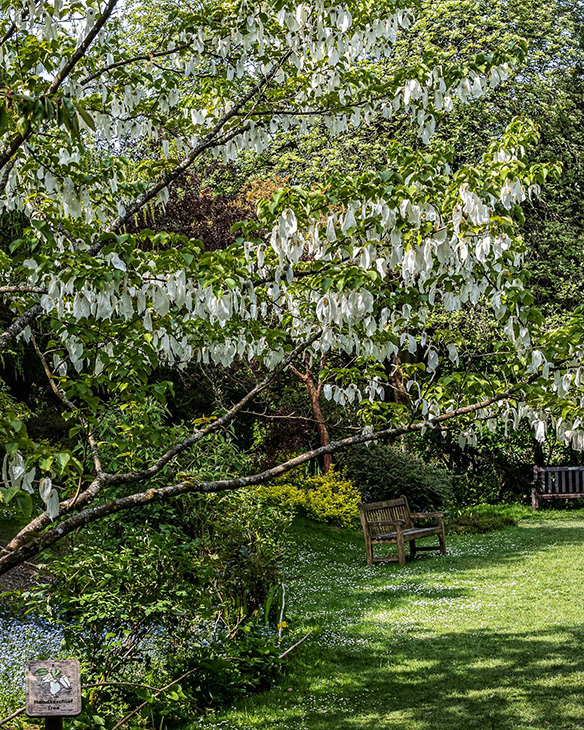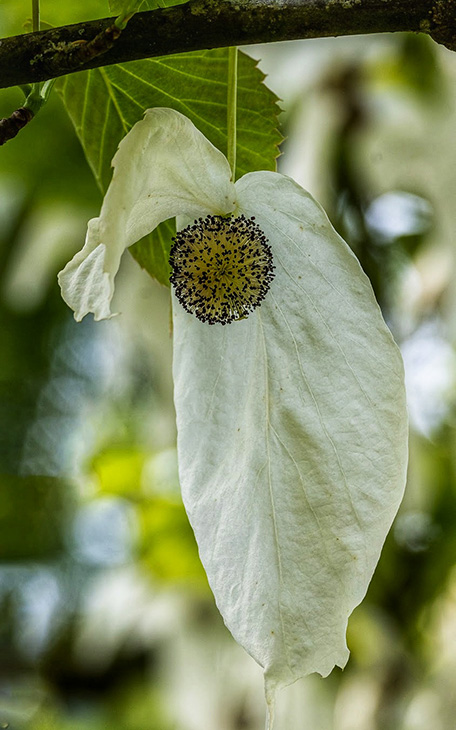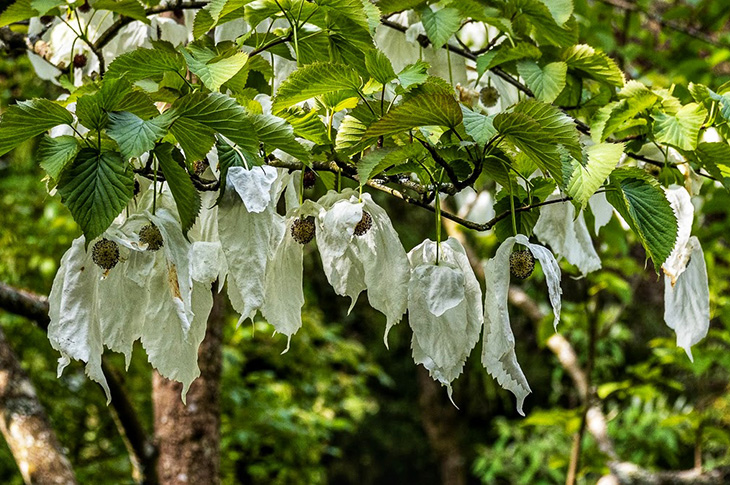Common names: Handkerchief tree, Dove tree, Ghost tree, Pocket Handkerchief tree
Latin name: Davidia involucrata
Found in South Central and Southeast China.
We have a few specimens of this magnificent tree at Highdown Gardens. One of the finest is located in the chalk pit opposite Musgraves Corner.
Photo: Handkerchief Tree (credit @captured_moments_61)

When in flower you can see why it has its name as its flowers flutter in the wind like white doves or handkerchiefs. The white ‘handkerchiefs’ are actually bracts, which are leaves morphed from green to white. The flowers are in fact marble sized and located in the middle of the modified leaves.
Photo: Handkerchief Tree flower close up (credit @captured_moments_61)

The modified flowers tend to form in lines along the branches, reinforcing its common names. Young trees do not flower as they can take 15 to 20 years to form their modified leaves. The tree is hardy, so will survive in the UK but prefers a sheltered position in moist but well drained soil.
Photo: Handkerchief Tree flowers (credit @captured_moments_61)

The handkerchief tree was discovered in China in 1869 and described by the French Franciscan missionary Father Armand David (Père David). It was then brought to the UK by Ernest Wilson in 1904. It is believed that Veitch Nurseries commissioned the young, non-Chinese speaking Wilson to find the tree.
One can only imagine how he may have felt as he had not been abroad before. On arrival, he discovered the trees he had originally been sent to find had been felled to build a house. It was lucky that he was able to find other plants which he then sent back to England.
Many thanks to Highdown’s Tour Guide Volunteer Anita Cannon, for writing this blog.
Please note photographs were taken by @captured_moments_61